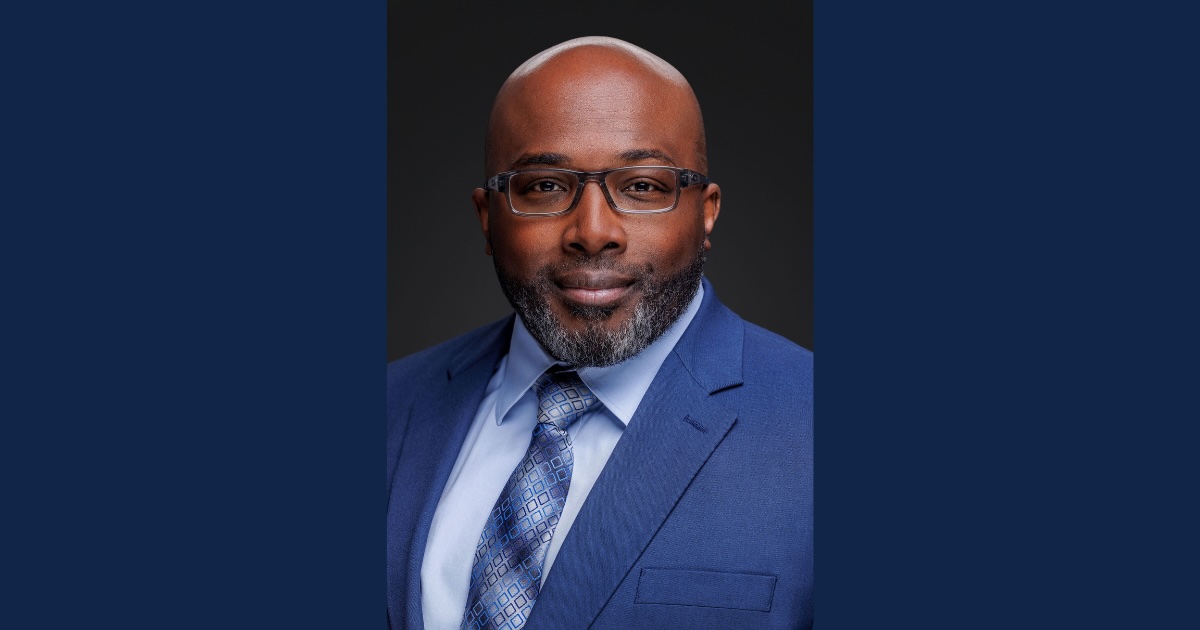Chief Gary Hill: A Decade of Service to LU
Office of Communications and Marketing
Young Hall
820 Chestnut Street
Jefferson City, MO 65101
 As he approaches his 10th anniversary with Lincoln University, Chief of Police Gary Hill reflects on nearly a decade of leadership, safety and service to the campus community.
As he approaches his 10th anniversary with Lincoln University, Chief of Police Gary Hill reflects on nearly a decade of leadership, safety and service to the campus community.
It’s been nearly a decade since LUPD Chief Gary Hill arrived on the historical HBCU campus affectionately known as Blue Tiger Nation. It’s not the first time the chief has walked the hills of LU – he’s a proud Lincolnite with a B.S. degree in criminal justice. After a long stint as a Cole County sheriff’s deputy, Hill came home to Lincoln in 2016 to serve the campus community he fondly remembers as a student.
The Clarion was there when he began as chief of the LUPD. This week, we asked Hill a few questions about his nearly a decade behind the helm of a much-improved campus police department.
This Q&A originally appeared in The Clarion, Lincoln University's historic student newspaper, and is reprinted here with permission.
It has been 10 years since you arrived at Lincoln University. How do you feel about that?
Hill: I cannot believe that it has been 10 years. We have been so busy with our mission of providing safety and security for the institution that I forget how much time has passed.
How do you feel things have changed since you began serving as chief at the LUPD?
Hill: Things are definitely safer for our students, faculty, staff and the Jefferson City Community as a whole. Each year, we have been able to work with our Lincoln University community to reduce crime and make safety improvements. The best way to measure the effectiveness of the police department is the absence of crime and disorder. Our annual security report tells that story.
What are your thoughts on the Lincoln University Law Enforcement Training Academy, which you started in 2020?
Hill: LULETA has been my life’s work! I am very thankful and proud of our instructors and graduates! They make this program a huge success. Our graduates are our biggest recruiting tool! Our instructors ensure that the recruits are ready to be successful in our communities. We have graduated almost 200 recruits from our academy. We have expanded the program and more than likely, we will have four training sites in 2025: Lincoln University's main campus, Harris-Stowe University - St. Louis, the Columbia Police Department and St. Roberts. The program is very successful and most of our graduates are employed by law enforcement agencies upon graduation. We have seen a substantial return on our investment for Lincoln University and the State of Missouri.
The training academy has been causing other HBCUs to start their own training academies. What are your thoughts on that?
Hill: I have worked with other HBCUs in the past to advise them on how to start an academy on their campus. So far, none have been successful due to state regulations, support, infrastructure and funding.
How have you been cultivating relationships with students and faculty at Lincoln University?
Hill: The relationship my staff and I have built with the students, faculty and staff is the reason for crime reduction and the restoration of trust for our department. My staff and I try to attend as many student-led events as possible, and we make ourselves available to the campus outside of enforcement activities. Ultimately, the university knows us by name, which helps us to humanize what we do as police officers.
How do you think the new Health and Security Sciences Institute will improve LUPD and police training?
Hill: I hope to see officers take advantage of the mental health certificate program.
What has been the most rewarding experience you’ve had since becoming LUPD’s chief of police?
Hill: To be able to come back to my alma mater and give back just as much as Lincoln University gave to me! Without Lincoln University, I have no idea where I would be in life right now. As chief of police and director of the academy, I get to make a difference in our students’ lives every day and give them the support that Lincoln gave me, which was key to my success!
What do you think the next 10 years here will look like?
Hill: In the next 10 years, I see growth! I see Lincoln University being the hub for public safety education!
This Q&A was originally published in The Clarion on April 30, 2025. The Clarion dates back to around 1932. Although the print edition was discontinued in 2013, a digital version has been published at myclarionnews.com since January 2014.
